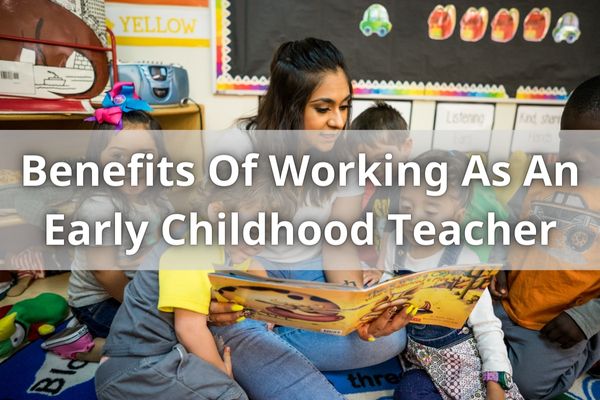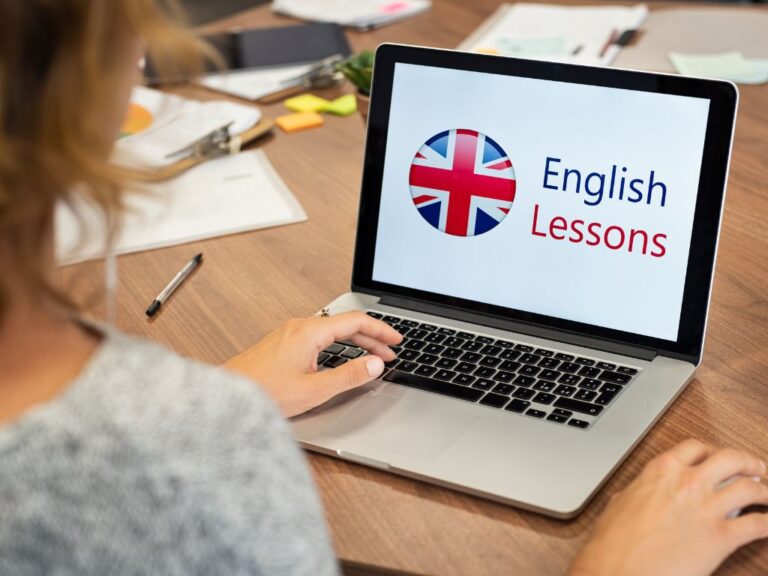Early Childhood Teacher Jobs: Chances In A Growing Field
Early childhood teacher jobs are an important, but often overlooked component of the education system. They provide young children with a foundation for success in their future educational endeavors and help shape them into productive members of society. The job responsibilities vary depending on where they work, but all teachers have the same fundamental role: to nurture and educate young minds.
In this article, we will discuss what it takes to become an early childhood teacher as well as some tips on how to land such a position.
Role Of The Early Childhood Teacher
The role of the early childhood teacher is an important one. It requires creativity, collaboration and a supportive environment in order to help children learn and develop socially. Teaching at this level involves providing a nurturing atmosphere that encourages creative learning through play activities and interactive lessons.
Collaborative learning opportunities are also essential for young learners as they work together on projects and tasks while growing their self-confidence.
Furthermore, it’s important for teachers to be able to create meaningful connections with their students by understanding individual needs and interests. A successful early childhood teacher should have experience working with diverse groups of children, including those from different backgrounds, cultures and abilities. Additionally, they must be able to provide guidance when needed in order to support social development among the children.
Early childhood teaching provides unique challenges which require specialized skillsets and qualifications; thus, making sure that candidates meet these criteria is essential for any school looking to hire an effective preschool or kindergarten teacher. Moving forward, we will discuss some of these necessary qualifications for early childhood teacher jobs.
Qualifications For Early Childhood Teacher Jobs
Education requirements for early childhood teacher jobs usually include at least a bachelor’s degree in early childhood education or a related field. Professional licensing may be required depending on the state or local government, so it’s important to check the specific requirements.
Experience is also key, and many employers prefer applicants who have previous experience in the field. Additionally, some states may require early childhood educators to have special training in areas such as health and safety or nutrition.
Other qualifications may include special certifications, such as those in special education or English as a second language. Lastly, having excellent communication and organizational skills is a major plus.
Education Requirements
Are you passionate about teaching young children? Becoming an early childhood educator can be a rewarding career choice, but there are certain qualifications that must be met.
Education requirements for prospective teachers of this age group may vary by location, although all require at least some form of post-secondary education.
Those working with children ages 0 to 8 will need to have knowledge in child led learning and identifying individual needs as they arise. This includes understanding how to guide social emotional development and creating an environment where every youngster feels safe and included.
A degree or diploma in Early Childhood Development is required in many places, while others just ask for experience related to the field.
When researching potential jobs, it is important to know what qualifications each one requires so you can make sure you meet them before applying! With the right credentials and dedication, becoming an early childhood teacher could open a world of possibilities for any aspiring educator.
Professional Licensing
Once you have the right qualifications to become an early childhood teacher, it is time to think about professional licensing.
Depending on your location, there may be different requirements in order to obtain a license or certification that allows you to teach children ages 0-8.
On top of having a degree or diploma in Early Childhood Development, you will most likely need to take additional courses and pass exams related to child development theory, health and safety regulations, and teaching methods.
This is all done with the intention of making sure new teachers are knowledgeable enough for their job outlook.
The job outlook for early childhood educators is quite good because of its increasing demand as more parents choose this educational option for their kids.
With valid licensure or certification from the state board of education, one can expect better salaries than those without such credentials.
The average salary expectations are based on experience level, geographic region, type of facility being worked at (private vs public), etc., but overall it tends to be higher than other jobs requiring similar qualifications.
Career opportunities within this profession also abound—from working in childcare centers to running preschools and kindergartens—so anyone interested in becoming an early childhood educator should certainly take advantage of these chances!
Experience
Gaining experience in early childhood education is an important part of becoming a qualified teacher.
Working with children aged 0-8 requires collaboration and engagement, as well as the ability to foster relationships between students and their parents.
As such, many job postings for this profession require some level of prior experience before applying.
This can be acquired through internships or volunteer positions at local schools and daycare centers.
It’s also beneficial to get involved in various programs that support collaborative learning environments where both teachers and parents are actively engaged in the child’s development.
All these experiences will help prepare future educators for the responsibilities they may face when working with young minds!
Skills Needed For Early Childhood Teacher Jobs
I think patience is a key skill for early childhood teacher jobs, as it’s important to remain calm when dealing with children.
Communication and interpersonal relationships are also vital, as teachers need to be able to effectively communicate with parents and children.
Creative thinking is essential too, as teachers need to come up with new and exciting ways to engage students.
Classroom management is also important, as teachers need to be able to control a classroom without being too strict.
Child development is another key skill, as teachers need to understand how children learn and grow.
Finally, planning, organizational skills, observation, dedication, love of learning, flexibility, cultural awareness, problem solving, and empathy are all skills that can help an early childhood teacher be successful.
Patience
Patience is an essential skill for early childhood teachers. It’s key in dealing with stress, fostering resilience and calming techniques to get the most out of each day.
Consistently demonstrating patience can be a challenge though; it requires practice, understanding and discipline. Being able to pause and take a few deep breaths helps us stay calm when things don’t go as planned, so that we can continue on without losing our temper or getting frustrated.
Acting as positive role models is also important; children will look up to their teacher, so showing them how to remain patient even in difficult situations sets a good example. With patience comes greater control over emotions which leads to better decision-making, more effective problem solving skills and the ability to manage conflicts constructively.
The rewards are endless! By taking time to reflect on our own behavior and recognizing triggers that cause negative reactions within ourselves, we can become better equipped at handling challenging moments with ease.
Communication
Communication is a key skill for early childhood teachers. From active listening to parent relationships and teacher collaboration, it’s important that they are able to express themselves effectively.
Being able to understand what others have said, as well as being heard by them in turn, goes a long way in building trust and forming meaningful connections.
Being mindful of body language during conversations can also be beneficial; nonverbal cues such as eye contact and facial expressions can help the speaker feel more comfortable when talking about their needs or concerns.
It’s essential that teachers create an environment where everyone feels respected and listened to – this will result in stronger communication between all parties involved.
Finally, having strong communication skills allows teachers to collaborate with other educators on projects or initiatives while still maintaining positive relationships with parents and students alike.
By taking time to listen carefully, speak clearly and respect boundaries, teachers can ensure their message is both understood and appreciated.
Creative Thinking
Creative thinking is another essential skill for early childhood teachers.
By encouraging imaginative play and supporting creativity, young students can begin to explore the world around them in a safe environment.
Teachers should also provide children with opportunities to take risks without fear of failure; this allows them to learn through trial-and-error and build confidence as they go.
Through creative activities, children can develop problem solving skills that will benefit them later on in life.
Additionally, fostering an atmosphere where both adults and children feel comfortable expressing themselves – such as by singing or drawing – helps create a positive learning experience all round.
In summary, it’s important for early childhood teachers to support creativity while also providing strategies and guidance when needed so kids can exercise their risk taking muscles in a supportive setting.
Professional Development For Early Childhood Teachers
Early childhood educators may learn a lot about the field of teaching through mentoring programs. They enable seasoned teachers keep current on the most recent methods while providing advice and assistance to those just getting started.
Early childhood educators should continue their education since it will help them improve their abilities and keep up with new ideas. They must remain on top of developments so that their kids receive the greatest education possible.
Mentoring Programs
Mentoring programs are an important component of professional development for early childhood teachers. They provide supportive networks, access to resources, and the opportunity to learn from experienced peers in the field.
For example, many school districts offer mentorship opportunities that allow new teachers to observe and collaborate with veteran educators. This allows them to gain insight into effective teaching practices while developing relationships with colleagues who can serve as a source of support during their first years on the job.
Additionally, these programs help ensure equitable salary levels across all staff members by providing more experienced employees with additional pay or bonuses for taking on mentee roles within the organization.
Mentoring is therefore essential for helping early childhood teacher stay competitive in the job market and professionally develop throughout their career. By creating strong connections between seasoned professionals and those just starting out, organizations make sure everyone has a chance at success.
Continuing Education
Continuing education is another important part of professional development for early childhood teachers. By taking classes and attending workshops, they can stay up-to-date with the latest research in their field, hone specific skills, as well as explore new career paths.
Additionally, this also helps create a network of professionals who are dedicated to providing quality care to children. Through continuing education opportunities, educators have access to networking tips from experienced colleagues and mentors which will help them succeed in their own career path.
In sum, engaging in ongoing learning experiences helps ensure that early childhood teachers stay competitive in the job market while expanding their knowledge base and advancing within the industry.
Benefits Of Working As An Early Childhood Teacher

Being an early childhood teacher can be a rewarding career, allowing individuals to make positive impact in the lives of young children. The job also provides creative outlets for self-expression and growth which is important for both teachers and students.
Working with younger learners gives teachers the opportunity to observe emotional growth and development while creating meaningful relationships. The work as an early childhood teacher involves more than just teaching academics; it requires patience, understanding, creativity, and skillful problem solving.
It’s no surprise that many people find this type of work extremely fulfilling. Not only do they have an opportunity to assist others in learning foundational skills but they are able to watch children gain confidence through their accomplishments and success.
These benefits are truly remarkable, however working as an early childhood teacher comes with its own set of challenges. As we move into the next section, we will explore those challenges and how best to address them.
Challenges Of Working As An Early Childhood Teacher
Working as an early childhood teacher can be incredibly rewarding, but it also comes with a few challenges. The most difficult of these is classroom management. With many children in the same room, it can be hard to keep order and encourage collaborative learning at the same time.
Additionally, parent involvement can sometimes become overwhelming or unhelpful if there isn’t clear communication about expectations for both teachers and families. These issues are not unsolvable; rather they require careful thought, planning and reflection on how best to manage them:
- Try setting up systems that encourage collaboration between students from the very beginning—this could include strategies like pair-work activities or whole class discussions.
- Keep parents updated about what is happening in your classroom throughout the year so that everyone involved knows what their role is supposed to be.
- Practice positive reinforcement when managing student behavior by focusing on praising good choices rather than punishing mistakes.
- Encourage autonomy among your students by giving them opportunities to make decisions in smaller groups or as individuals within set parameters you have established beforehand.
It’s possible to work through these common issues faced by early childhood educators while finding creative solutions that benefit all parties involved – including yourself! With thoughtful problem solving, patience, and dedication this career path can still provide immense satisfaction despite any obstacles encountered along the way. Learning more about specific job requirements and understanding different approaches used by other professionals may help develop better practices too; which in turn will lead to increased success in the field of early childhood education!
Finding Early Childhood Teacher Jobs

Finding early childhood teacher jobs is a process that involves multiple steps. Networking with other teachers or attending job fairs can provide great opportunities to learn about available positions and make connections within the field. Additionally, regularly checking online job postings and submitting applications are essential components of finding employment in this area.
| Step | Description |
| 1 | Networking Opportunities |
| 2 | Job Postings Online |
| 3 | Interview Tips & Preparation |
Building relationships with individuals already working in the early childhood education space can help open doors for potential career advancements. Connections made at job fairs may lead to referrals when openings come up. Utilizing online resources such as professional networks, social media platforms, and specialized websites designed for job searches can also be beneficial. Subscribing to email newsletters from popular sites like Indeed can keep prospective candidates informed on newly posted positions.
Finally, once a candidate has been selected for an interview, it’s important to practice responding to questions typically asked during these types of meetings. Doing research beforehand on the organization and preparing answers ahead of time will put applicants at ease while they discuss their qualifications and experience with hiring staff members.
With all these pieces combined, individuals searching for early childhood teacher jobs should have no problem making progress towards their goal. Now let’s explore continuing education for early childhood teachers to further enhance their skillset.
Continuing Education For Early Childhood Teachers
Once early childhood teachers have found their ideal job, they should not forget that ongoing education is essential for career growth.
With parent-teacher relationships continuing to change and evolve over time, it is important to stay up to date on the latest teaching strategies and techniques.
- A supportive network of colleagues can be invaluable when seeking out professional development opportunities such as workshops, seminars or online courses.
- Continuing education helps early childhood educators increase their knowledge base and improve classroom skills.
- It’s also a great way to make connections with fellow professionals in the field who may offer advice and guidance on ways to expand one’s career path.
- Taking part in conferences, lectures and other events allows teachers to strengthen their understanding of current best practices while staying ahead of the curve within their profession.
By taking advantage of these educational options, early childhood teachers can gain fresh insights into how best to meet the needs of young learners, develop meaningful parent partnerships and grow professionally throughout their careers.
Investing in self-improvement through continued learning will pay off both now and in the future for those dedicated individuals looking to cultivate successful futures for themselves and the children under their care.
Conclusion
As an Early Childhood Teacher, you can expect a competitive salary and the opportunity to help shape young minds. It may take some time to become a qualified teacher, but with support available from organisations like Teach For Australia, it’s never been easier to get started in this rewarding profession.
The job outlook for ECTs is promising too – increased demand means more opportunities are becoming available each year. With the right qualifications and experience, there’s no reason why you won’t succeed as an Early Childhood Teacher!







